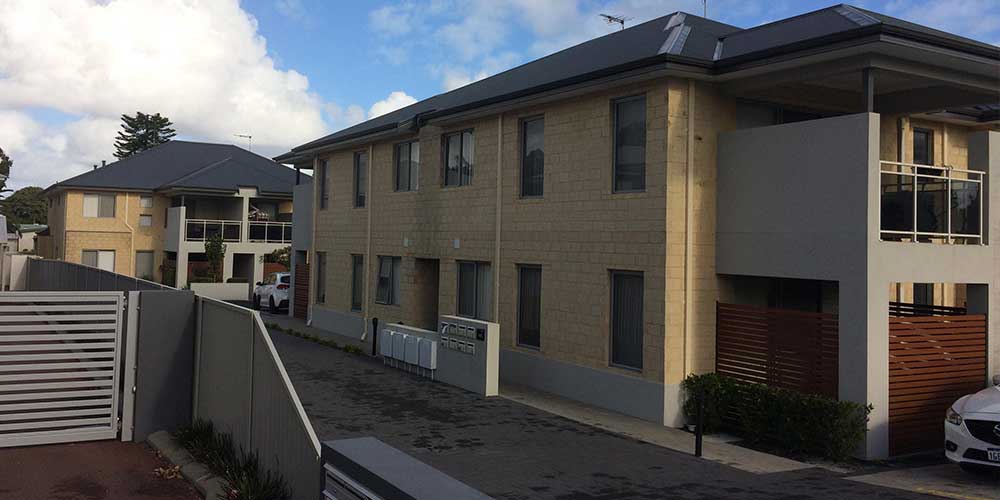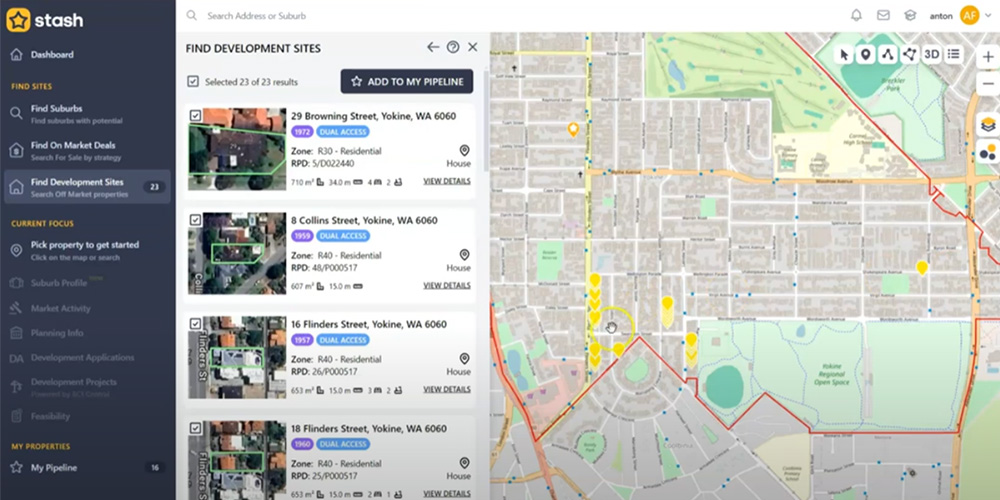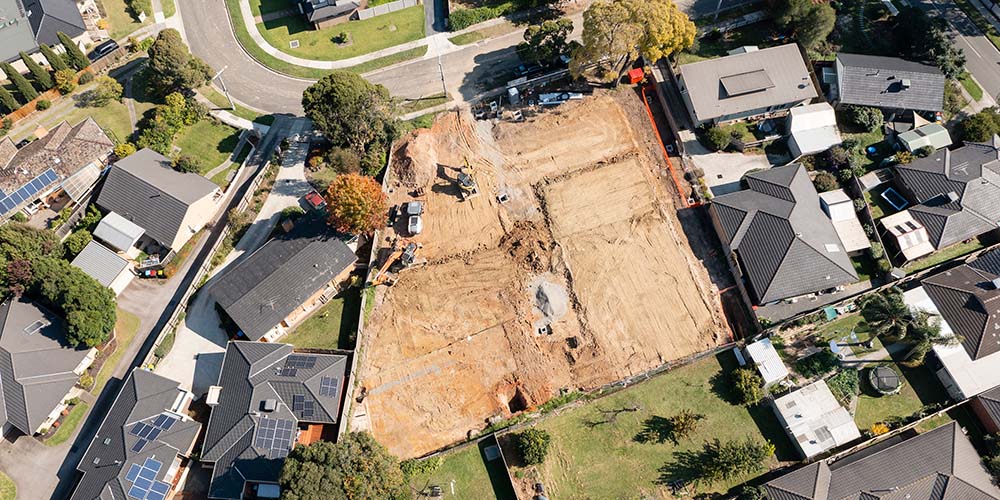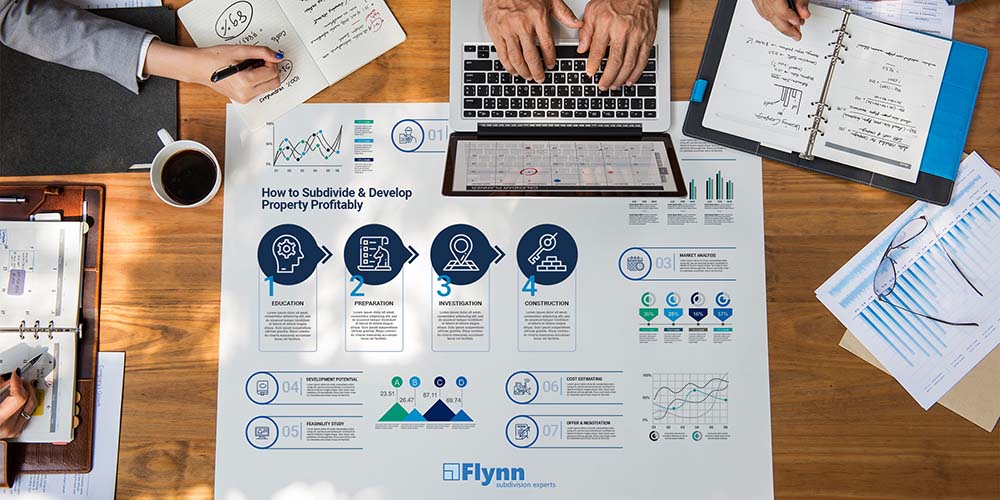
How to Become a Property Developer Today
Ever wanted tot learn how to become a property developer that does successful deals? Well, this article will provide 5 tips on how to become a property developer, that if acted upon, will keep you focused and put you ahead of the pack in the property development game. Many people know there is plenty of money to be made in property, but also appreciate there are lot of risks, which need to be navigated confidently to avoid costly mistakes. To make the most of these opportunities, you need to learn how to become a property developer who can pick the best deals and come up with the best design solutions for a site that optimises profit. In Perth the market conditions have presented many challenges for inexperienced developers over the last few years, so it is important to skill up and nurture your developer mindset before getting started.
In the same market, smart developers have made a small fortune off the back of a very competitive construction and services market, and their ability to acquire sites at bargain prices not available in the boom. How have they done this? The secret to success lies in acquiring the knowledge and mindset of a successful developer. Acquiring these skills will teach you how to be a successful property developer ready for the next period of property growth in Western Australia.
Top 5 Tips on How to Become a Property Developer
1. Understand the R-codes and local planning policies
A savvy developer has a sound knowledge of the performance requirements in the R-codes, or “ Residential Design Codes”. This is the statutory document that provides a minimum performance standard against which all residential developments in Western Australia are designed and assessed. It provides information on minimum and average lot sizes, set backs, open space requirements and other important design criteria that a development needs to meet. Importantly, there are also concessions and variations available to some of these design criteria in the R-codes, outlined in the document. Your ability to understand and apply these are vital to facilitating the best design and maximum returns in a development . There is more details on the R codes on the can i subdivide land page of our website.
A smart developer also researches and has a sound knowledge of the Local Planning Scheme text and Planning Policies in the local Government area he is developing. These documents are the rulebook, and will supplement the performance requirements in the R-codes. These two documents can provide further design concessions or provide added hoops to jump thorough and costs. The first step of how to become a successful property developer therefore means you ability to use state and local government planning legislation to your advantage in the design process.
2. Research the market and consider design alternatives
Bigger is not always better. A successful developer will look a development potential site not with a view of how much he can fit on the site, but rather what can he put on the site that will maximise return and sell the fastest. What is there over supply of in the area, and what is there unmet demand for. It may be the case, that there is an oversupply of 3×2’s and apartments in an area, however undersupply and overvalue of family 4×2’s. Looking at feasibility spreadsheets for several design solutions for the site will find the best ROI scenario for the site and drive the development –and it may not always be constructing the most dwellings!
Investigating alternatives design solutions for the project will change the strategy of how to develop the site, and affect the what you offer to pay for the property in the first instance (or if you decide to purchase it at all). Begin with the end goal in mind- who is going to buy what you are producing? Does this offer a high enough return for your efforts?
3. Look ahead of trend and identify opportunities others have missed
Smart developers are nowhere near a suburb everyone else is telling you is a great place to develop in. They have been and gone. By this time there is too much demand for sites in the area, and will soon be and oversupply of product if everyone is developing there. Look ahead of trend- actively keep abreast of scheme map and policy changes in local government areas (ie- proposed rezoning).
This means keeping an eye on draft planning policy issues for public comment, or things like community and user group workshops, and ministerial and local government announcements. Where is a new activity hub proposed, or a train station? Or a shopping Centre expansion? These are strategic planning changes you need to have knowledge of whilst they are being developed and drafted, not once they are legislated. This way you will get an idea of good places to buy before the novice developer stampede sets in.
Identifying and understanding changes in state and local planning policies, and apply them, will also allow you find opportunities others have missed. For example, your knowledge of dual coding requirements or obscure scheme text clauses may help you pick up development potential sites that the real estate agent has completely missed! Keeping abreast of these before they become common knowledge is vital to becoming a successful property developer.
4. Perform detailed feasibility studies – make sure you are going to make money
Profit is revenue minus cost. It is exceptionally important to find out what this amount is going to be before you start a development or even purchase a site. This is called due diligence – learning to investigate and refine design solutions for a site before committing to execution with a reasonable degree of certainty about profit is a key part of learning how to become a property developer. As a developer should be targeting a return on cost of 20%+
Feasibility is not a crystal ball because we are relying on a future revenue forecast. Feasibility studies do however provide a sufficient estimate of project costs, revenue and profits to affect a go no-go decision on the project. A good developer will come up with an optimum preliminary design, cost it, and perform market research on what he can expect to receive for the end product. Performing satisfactory feasibility study on the best option (or options!) for the site is vital before committing to a development. Don’t be the developer who works out he is losing money halfway through the project because he was hoping for the best.
5. Keep emotions out of it
When buying or building a house to live in, its ok to spend extra on the kitchen, fall in love with the bathrooms and pay a premium for personal satisfaction, throwing rationale out the window. It will be your home for the foreseeable future and you have to like living there.
The criteria for purchasing properties to develop are completely different. Developing properties is a business decision justified with economic rationale. Keep human emotion out of the development process.
- If the dollars don’t stack in the feasibility, and the seller wont budge on price, walk away.
- If there is a bidding war, walk away.
- If someone else beats you to the deal, walk away.
There will always be more project opportunities. Development is about finding the right one to purchase, planning it correctly, and completing it as fast as possible to maximise return on investment. Don’t enter the property market to buy as a developer with an owner-occupier mindset!
Master these 5 skills and you will be well on your way learning how to become a property developer who will experience success.
Do you want professional training on how to become a property developer?
We teach aspiring developers the process of how to do subdivision and property development successfully. Our education, information and advice services include subdivision & property development training courses, books, and articles.




